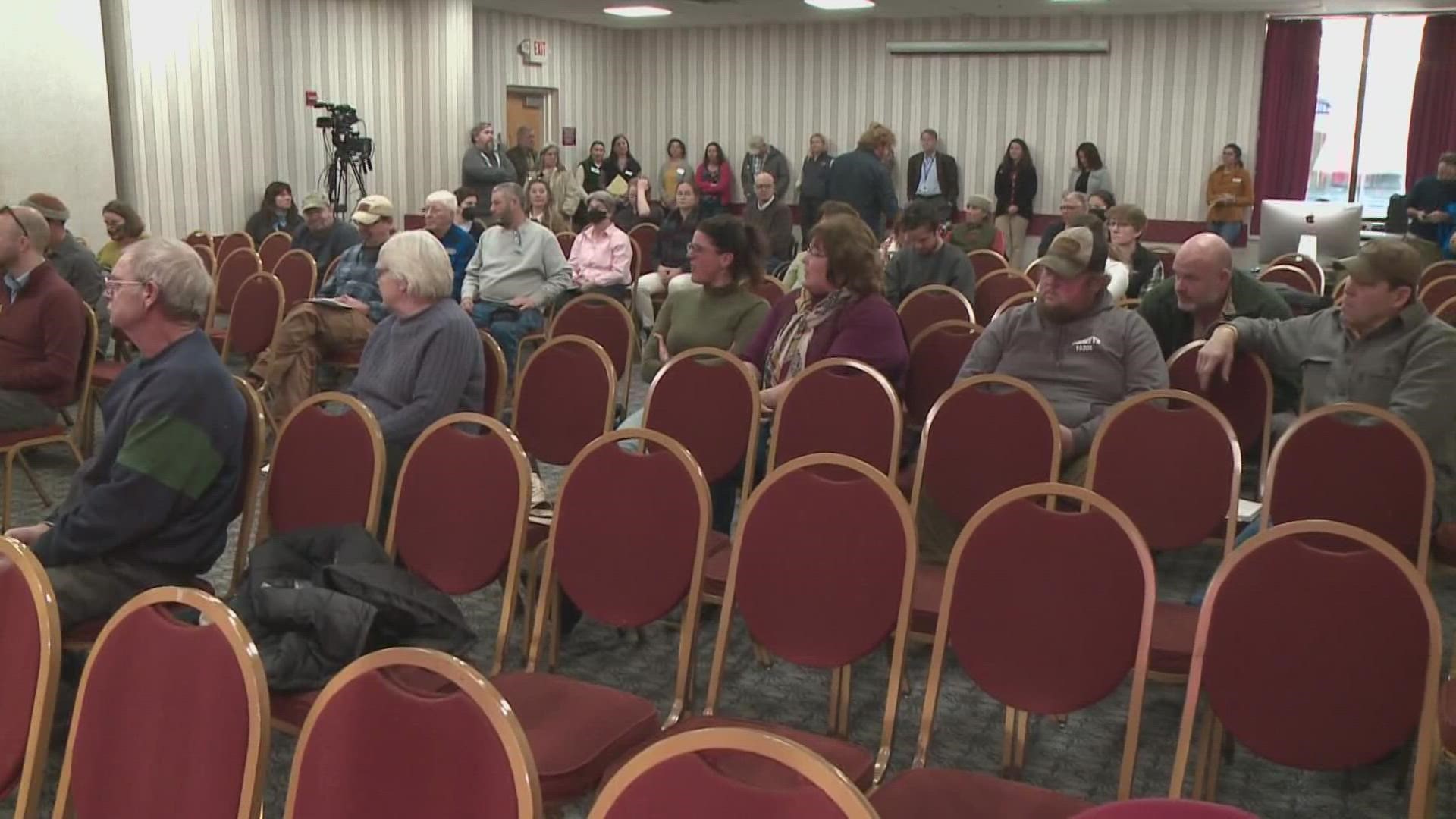AUGUSTA, Maine — The Maine Agricultural Trades Show wrapped up Thursday at Augusta Civic Center. The annual event drew farmers and businesses from across the state network on how to produce better products.
Farmers grappling with the impact of contamination from toxic chemicals known as PFAS also had a chance to testify before a committee that oversees a multi-million-dollar fund, that will provide financial relief, health monitoring, and testing.
Farmers who face an uncertain future because of forever chemicals want their concerns heard.
"We need to ensure that the affected farms that we currently know of, are made whole financially," Annie Watson, who owns Sheepscot Valley Farm, said.
Watson is an organic dairy farmer and president of the Maine Dairy Industry Association. More than two dozen farmers spoke at a public hearing on Wednesday before members of the PFAS Fund advisory committee.
Made up of farmers and researchers, members are tasked with coming up with recommendations on how to distribute $60 million in state funding. The money will go to help farmers whose land and water were contaminated with industrial compounds.
The chemicals were in sludge that was spread as fertilizer through a state-licensed program. Serene Hart's parents have raised cattle on their 400-acre farm in Lisbon Falls for years. Recently, tests found the chemicals in the farm's soil and water.
"That was my father's main source of income from the beef cattle, so they would have to compensate him," Hart explained.
Adam and his wife, Johanna Davis, own Songbird Farm. They had to pull their organic grain and vegetables from the shelves and shut down their farm, following the discovery of high levels of PFAS in their produce, water, and soil.
The couple and their toddler also found out they had elevated levels of PFAS in their blood. PFAS has been linked to serious health problems including cancer and thyroid dysfunction, something that haunts him every day.
"We can't walk away from it even if we leave our farm," Nordell testified before the committee.
Four subcommittees will consider proposals like a back program and income replacement, supporting farms to pivot their business to stay afloat, research and health monitoring
"Strategies for medical monitoring for people who have elevated levels of PFAS, and access to mental health care we can provide," Beth Valentine, the Director of the PFAS Fund, said.
Rep. Jessica Fay, D-Raymond, the committee's chair said, the testimony is key to helping farmers get back on their feet.
"[It's] starting to flesh out some recommendations and specific policies as to how these funds should be spent," Fay explained.
Another PFAS fund public hearing will be held in the next month or so. The committee will present its recommendations to the Legislature's Agriculture, Conservation and Forestry Committee later this spring.

